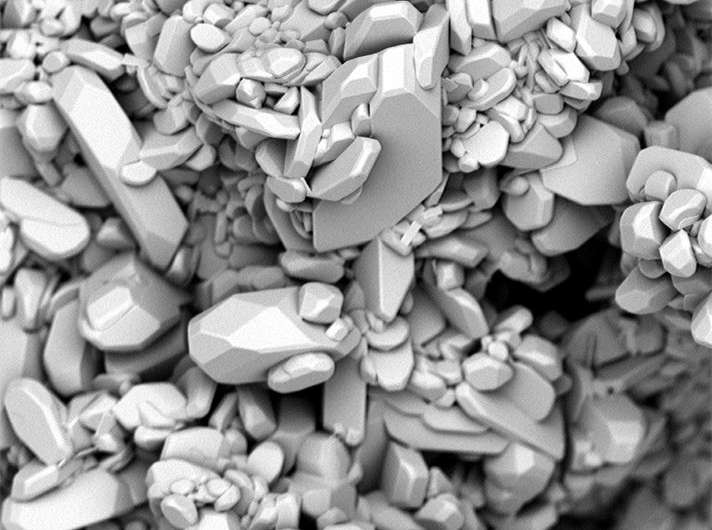Chemists find way to prevent side effects from malaria medication

The antimalarial drug Mefloquine, branded as Lariam and used by many travellers to tropical countries, is a substance with two different forms of molecule. One form contains the active substance, but the other form causes unpleasant side effects. Until now, it was difficult to separate these two forms in the production process. But chemists from Radboud University have now published the answer in the scientific journal Angewandte Chemie.
The drug Mefloquine is used to prevent and treat malaria. Research shows that about 10 percent of female travellers used the medication used for a trip to an area where malaria is present. It is also prescribed for small children. The side effects of the drug include insomnia and abnormal dreams, not to mention anxiety, depression and psychosis. These side effects can even last for years afterwards. It is well known that the medication contains two different forms of molecule, one of which is the active substance, while the other is responsible for the nasty side effects.
Mirrored molecules cause different effects in the body
For practical reasons, both forms are administered by the drug. Chemist and Ph.D. student Ton Engwerda explains, "The production of Mefloquine creates a left-handed and right-handed molecule; the left-handed molecule is the mirror image of the right-hand molecule. While they may look so very similar, they are not the same and have a different effect on the human body. The right-handed molecule fights the malaria parasites, but the left-handed molecule affects the central nervous system." Another example of medication that administers two forms of a molecule is Softenon. In the late 1950s, it was found that drug causes birth defects in unborn babies.
Separating the good and bad Mefloquine molecules during the production process has proven to be extremely difficult. While other substances form crystals of either right-handed or left-handed molecules, Mefloquine crystals form with a mixture of both right-handed and left-handed molecules. "That presented us with a challenge," says Elias Vlieg, Professor of Solid-State Chemistry. For many years, Vlieg has been carrying out research into growing crystals, looking for ways to manipulate how they grow. "It has now been ten years since it was discovered how to turn a mixture of crystals with left-handed or right-handed molecules into only one of the two forms. This is done by stirring a slurry of crystals and glass beads till you are left with just one type of crystal. But this technique does not work with Mefloquine."
Mefloquine without side effects?
The chemists then had an idea. First, they created a substance similar to Mefloquine that does have the correct properties, after which they split up the normal grinding process into two steps. They continuously pumped the mixtures between two vessels, in addition to the stirring. After eighteen months years of trial and error, Ph.D. student Ton Engwerda finally managed to extract only the good crystals from the molecule. "I wanted to study a substance that is relevant to society, and now we have managed to do that." The chemists at Radboud University demonstrated that it is well and truly possible to separate the good and bad molecules in Mefloquine. Whether it will actually lead to a change in the production process is up to the manufacturer says Vlieg. "We have shown that it is possible; it is a proof of principle. We have developed a method that other scientists and manufacturers are more than welcome to use, including for other drugs providing similar problems."
More information: Elias Vlieg et al. Attrition-Enhanced Deracemization of the Antimalaria Drug Mefloquine, Angewandte Chemie International Edition (2018). DOI: 10.1002/anie.201811289
Journal information: Angewandte Chemie , Angewandte Chemie International Edition
Provided by Radboud University



















